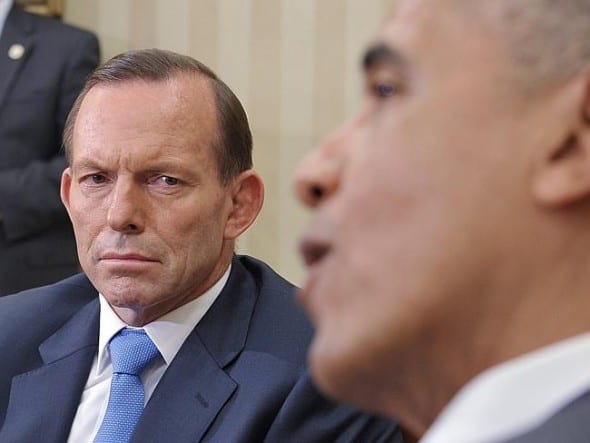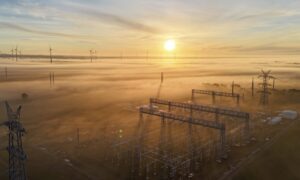Last week Tony Abbott was sounding all concerned about the future of the planet. The world only has one, he said accurately, and we should really protect it. But not if it meant sacrificing the economy for the sake of the environment.

Those comments were ridiculed by leading economic commentators such as Fairfax Media’s Ross Gittins, who noted that the economy is actually a “wholly owned subsidiary of the environment”, and on social media: “If you think the economy is more important than the environment, try counting your money while holding your breath,” noted one Tweet.
Leading economist Nicholas Stern has added his voice to the debate. In a speech in Paris overnight, at an event organised by the French government in the lead up to the Paris climate summit later this year, Lord Stern said it was clear that economic growth and climate responsibility had to go together.
“There is no horse race between economic growth and climate action,” Stern said.
“To portray them as in conflict is to misunderstand economic development and the opportunities that we now have to move to the low-carbon economy. To pretend otherwise is diversionary and indeed creates an ‘artificial horse race’ which can cause real damage to the prospects for agreement.”
Abbott’s increasingly isolated position, and his government’s apparent determination to dig the economy further into a fossil fuel lock-down, as it considers using taxpayer’s money to finance the critical rail link for the huge Adani coal mine, comes as other major economies accelerate their own shift to clean energy.
US President Barack Obama kicked off a 10-day “climate tour” of the US with a speech to a clean energy summit in Nevada (Abbott ministers don’t do speeches to clean energy summits), in which he promoted solar energy, and attacked fossil fuel interests fighting renewable energy, particularly the infamous Koch brothers.

“When you start seeing massive lobbying efforts backed by fossil fuel interests, or conservative think tanks, or the Koch brothers pushing for new laws to roll back renewable energy standards, or to prevent new clean energy businesses from succeeding, that’s s problem,” Obama said.
Obama highlighted the plunging cost of solar, and defended the community’s right to install solar, despite some attempts by utilities in the US to remove incentives, in a repeat of acts that have become widespread in Australia.
Obama noted that corporate giants Walmart, Google and Apple were among the largest purchasers of clean energy and installers of clean energy systems in the world. “For decades, we’ve been told that it doesn’t make economic sense to switch to renewable energy,” Obama said. “Today, that’s no longer true.”
He said that the nation’s quick move toward renewable energy was creating “resistance from some fossil fuel interests.” He cited the Koch brothers among people who like to promote free-market ideology, except when it comes to clean energy.
As he spoke, the White House unveiled a range of initiatives to encourage consumers to develop their own electricity – from rooftop solar and battery storage.
“We are seeing the beginning of this transformation,” Energy Secretary Ernest Moniz said in a press call unveiling the initiatives on Monday, “and we see a huge opportunity to expand it rapidly.”
Australia is at the forefront of this transformation, because it has more rooftop solar per household than any other country. Yet the changing dynamics are not recognised by the Abbott government, or by regulators who continue to put the brake on incentives, rather than seeking to accelerate them.
Back in Paris, Lord’s Stern speech highlighted the isolation that the Abbott government will feel in the lead up and at the Paris climate talks, particularly in its insistence that coal is the answer to energy poverty.
“We have learned how the use of fossil fuels is creating a whole range of problems in addition to climate change, particularly huge damage through air pollution,” Stern said.
“Lives and livelihoods are being destroyed now on a great scale by air and other pollution. The number of deaths from this source is many millions a year globally, with affliction and maiming of many millions more.”
He also called for world leaders to attend the summit in Paris at the end of the year, and said that it “should not just be for environment ministers and foreign ministers”.
“It must have the support and involvement of Presidents, Prime Ministers, economy and finance ministers as well. Remember, this is all about development and growth. This is about the two defining challenges of our century: overcoming poverty and managing climate change. If we fail on one, we will fail on the other.”







